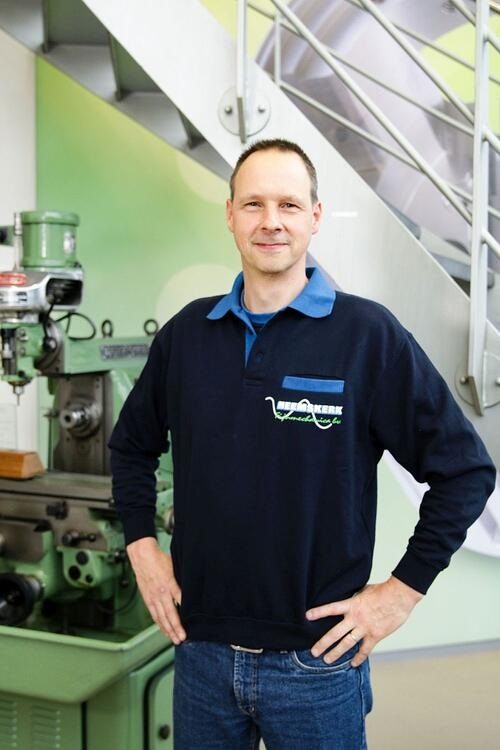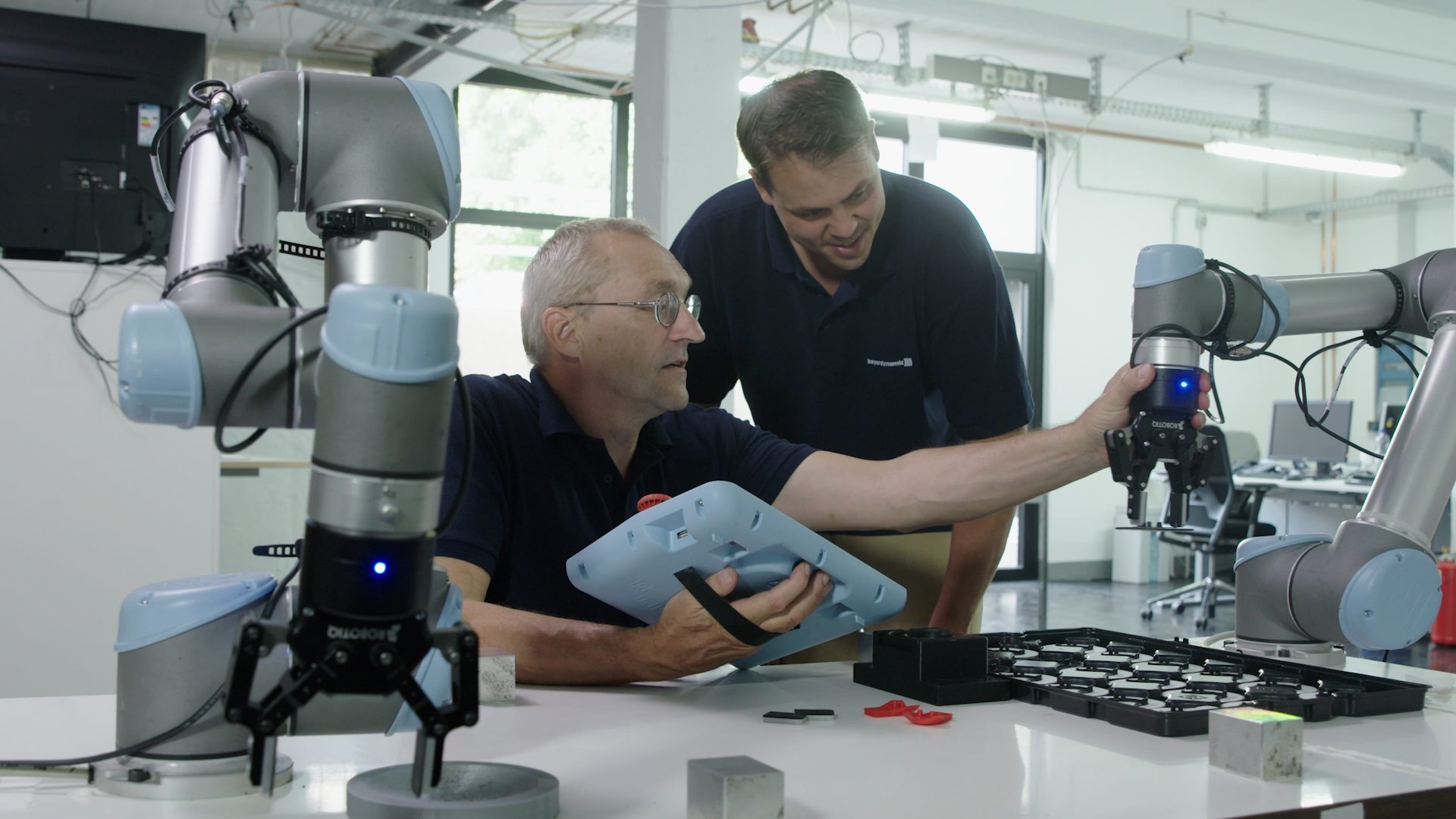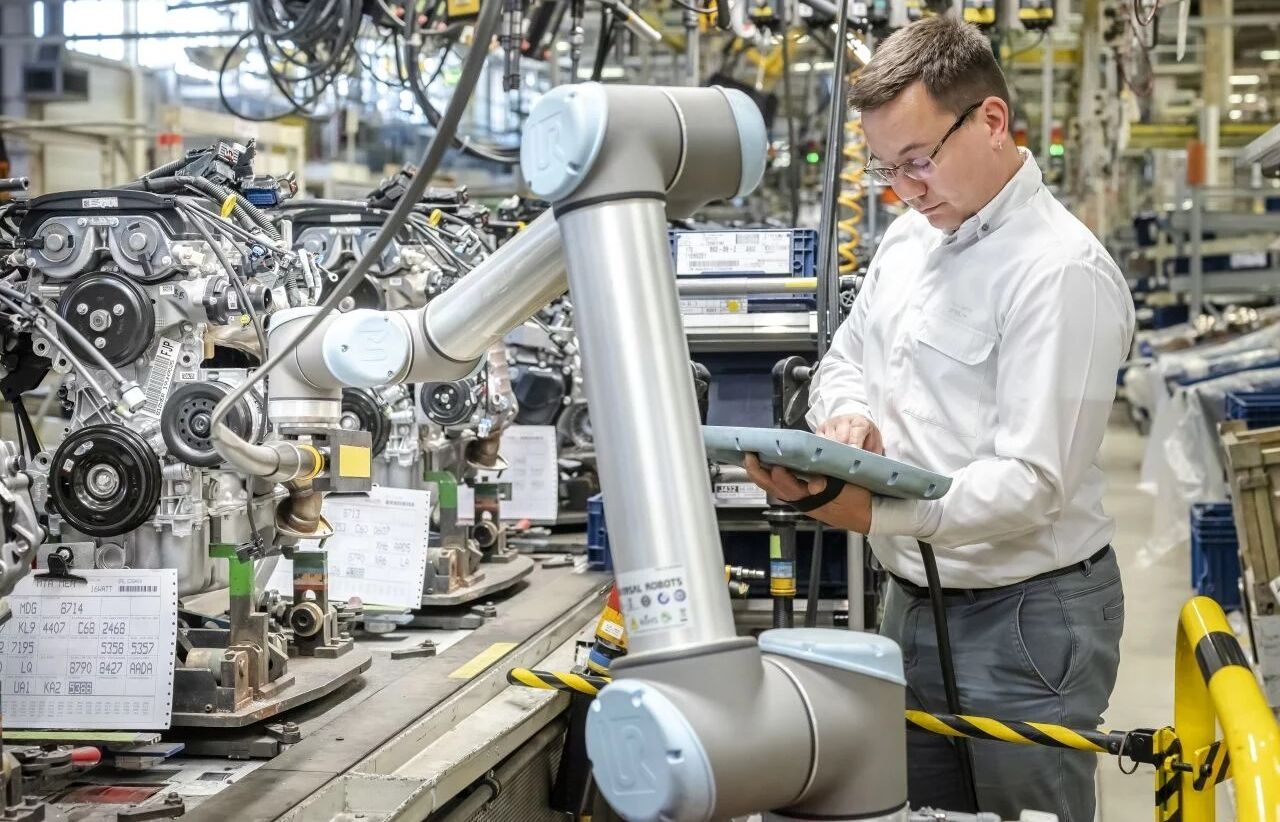How do you master current challenges with cobots?
In recent years, digitalization, globalization and the drive towards less globalization have led to a number of changes in the economy and the world of work. In order to better cope with these changes, many companies are focusing on automating their production. These companies are then ideally equipped even in crisis situations, including the current coronavirus crisis.
The Swiss economy is facing more and more risks: The trade conflict between China and the USA, the downturn in the German economy and the current coronavirus crisis, the effects of which we cannot yet fully assess.
In addition to the risks, there are further challenges, particularly for manufacturing companies in Switzerland:
- Individual custom-made products in small quantities are increasingly in demand. You then also need to produce these promptly and cost-effectively.
- At the same time, however, there are fewer and fewer qualified staff. As a result, it is becoming increasingly difficult to find good staff for monotonous and physically demanding tasks.
When we look at the risks and challenges, it becomes clear that something has to change. This is possible with collaborative robotics, and not only for large companies, but also for medium-sized and even the smallest companies. With the help of collaborative robotics, these companies can meet the challenges and risks very well. Production can be automated flexibly and cost-effectively.
We take a look at three success stories from the Netherlands and Germany that can also be applied to Switzerland:
Retain and upskill employees
Example 1: Heemskerk Fijnmechanica B.V. Netherlands
Heemskerk Fijnmechanica B.V. produces precision mechanical components for the aviation, automotive and packaging industries. In production, the company relies on collaborative robots (cobots) from Universal Robots, particularly for loading the machines and cleaning the finished components. The automation of production is very important to the company, as Lucien Heemskerk, owner and Managing Director, emphasizes: "In order to keep up with international competition, we have to work efficiently. If you want to keep your production in the Netherlands, you have to be creative, think outside the box and do things differently from everyone else."
For the employees, the decision to automate some areas of production has paid off. In particular, the automation of tedious and monotonous tasks such as loading machines has improved the quality of the employees' work.
Employee Anton van Dam confirms this. He has been with the company for over 25 years and previously had to perform these tasks manually. Thanks to the relief provided by the cobots, which are also easy to operate, he has been able to develop professionally.

"Today, I program the robots anew every day and develop new applications. This has made my job much more varied and exciting."
This is why Managing Director Lucien Heemskerk also sees cobots as an excellent way of securing jobs in the Netherlands. According to him, it is difficult to find skilled workers and retain existing employees. By handing over the boring and strenuous work to the cobots, he can now give employees more responsibility and offer them more interesting fields of activity.
Making production processes more flexible
Case study 2: Albrecht Jung GmbH & Co. KG
Albrecht Jung GmbH is constantly on the lookout for state-of-the-art manufacturing processes. They want to make their production as waste-free and flexible as possible so that even small batch sizes can be produced easily. With the use of cobots, the value chains have been optimized according to lean principles.
The company, which is a traditional specialist for electrical installations and modern building technology, uses a total of eight collaborative robots (UR3 and UR5). The applications range from pick-and-place to screwing and assembling parts to packaging. After the successful risk assessment, it was also clear that no safety fencing was required. Thanks to the short changeover time of the cobots, the company is now able to react quickly to individual customer requirements. This also means that the company carries out the programming and configuration of the peripheral products itself.
Production manager Schäfer, who plans to use more cobots, is also convinced.

"We are proud to be able to successfully optimize our production with this cutting-edge technology. The cobots enable us to significantly reduce costs and throughput times - resulting in a rapid return on investment."
Ensure the quality
Case study 3: beyerdynamic GmbH & Co. KG
Beyerdynamic is a premium manufacturer of audio devices. High quality is very important to the company. That is why it wants to continue supplying customers with quality products "Made in Germany" in the future. The company is based in Heilbronn and relies on cobots from Universal Robots for production. As the company stands for high sound quality, the standards in production are also very high.
To ensure consistent quality in the production of headphones, the company relies on a UR3 and a UR5 robot from Universal Robots. These robots support the employees in coating loudspeaker membranes with a dispersion medium.
Until the cobots were used, three employees were responsible for this work step. They applied the medium to the membranes by hand using a brush. Naturally, this led to strong fluctuations in quality. Thanks to the use of the cobots, these fluctuations are now a thing of the past.
Overall, the quality of the products has improved significantly. At the same time, productivity in this area has increased by 50%. The company would like to continue on this course and implement further cobots in production.

"We are focusing on growth for the future and therefore also on a further increase in our productivity and an unprecedented quality index with regard to our products."
Cobots guarantee success for the production of the future
These three real-life case studies show very well how manufacturing companies can stay on course for success with collaborative robots in the face of the current challenges and crises:
- By having cobots take on physically demanding tasks, you create space to further develop the individual talents of your employees. Employees can gain further qualifications much more easily.
- By using cobots, you can adapt your production much more flexibly to changing conditions and optimize production processes in a variety of ways.
- Thanks to the high repeat accuracy, significantly better product quality is guaranteed. This gives you a decisive competitive edge.
You too can make use of collaborative robotics and embrace the automation of production as an opportunity for the future. If your employees and end customers benefit, you benefit too.
